I Was An Extra on Yellowstone...

It’s an early morning in September and I’m pulling into a casino parking lot about twenty miles from Missoula, Montana. What am I doing at Gray Wolf Peak Casino at 8:30 AM on a Wednesday? Did I get some sign from the gambling gods that today is my lucky day? No, nothing like that. Actually, I’m here for a special side job. Two weeks earlier, I had read in the Missoulian about a TV show called Yellowstone, starring Kevin Costner, and one which began filming in and around the Bitterroot Valley that summer. They were looking for extras, so I left my contact info and head shot, not thinking much about it. A week later a talent agency out of California gave me a call.
I slow to a stop and a goateed man wearing a reflective vest politely taps on my car window. He does a rolling motion with his hand. I pull my cloth mask over my nose and roll down my car window. “I’m an extra on the show,” I tell him. He waves me through as though annoyed by the mention of it, pointing to a dirt field full of cars in the distance. I find my way there, park my car, and sort through my various forms of ID. I double-check my phone to make sure I still have the QR code showing that I’d tested negative for COVID-19, paid for by the show. After I get my bearings, I return to the parking lot. Along the way, I pass by several white, oversized wedding tents and unhitched white trailers, at least a dozen, lined up in neat rows like housing in some over-planned subdivision. A fleet of white unmarked vans idle nearby on the curb, sputtering exhaust into the chilly morning air. At the check-in tent my QR code is scanned. I’m given a neon medical bracelet and sent on my way. I notice another tent nearby where two highly-caffeinated cooks are busy making omelettes and breakfast burritos for everybody. “It’s free!” a young, twentysomething man with facial piercings and sleeve tattoos announces as he exits the tent, carrying away a plate piled with enough food for several people. I definitely get a summer festival vibe from everyone.
By 8:45, a tanned man with blonde highlights ushers us into one of the large wedding tents. He looks about thirty. The heavy bags under his eyes tell me he hasn’t been sleeping much. I take a seat at one of the long tables. Tanned Man coordinates with another member of his team. I eavesdrop on their conversation, but I have a difficult time following their Hollywood movie jargon full of acronyms. Tanned Man looks distracted and frustrated. Maybe something isn’t going as smoothly on the set. The walkie-talkies that hang from their hips spew static and muffled voices. Finally, they sit down at a table surrounded by pens and a giant stack of what appears to be paperwork. A line forms and snakes out the tent.
On one side, I notice smaller, black tents with long zippers up the middle--the changing rooms. The extras who know what they’re doing immediately occupy the changing tents. From the looks of it, it seems like people brought their entire cowboy wardrobe with them: Stetson hats, riding boots, leather vests, extra belt buckles, and a plethora of Western shirts. Some carry as many as three separate costumes. Already, I feel like I’m on the set of a Sergio Leone western. The only thing missing are the corny one-liners.
We begin to self-segregate according to our roles. More people pour into the tent. Now we have cocktail waitresses, security guards, businessmen, and the two distinct types of gamblers: epic and tourist. As explained to us, the epic gamblers were extras assigned roles like cowboy, biker, or CEO, while the rest of us, tourist gamblers like me, were asked to come in our street clothes.
“Everybody, listen up!” Tanned Man says. He goes through the rules for the day, including wearing masks and social distancing. Until he mentions it, I almost forget we’re in the middle of a pandemic. He says no photos or video recording once we enter the casino. “Also,” his partner adds, “keep your paperwork with you until we sign them at the end of the day. If you lose them, you don’t get paid. Understand? After you fill out your forms, go to the costume area and make sure your clothes are appropriate for the scene.”

We file out of the wedding tent and follow another crew member wearing Carhartt overalls. We gather at the back of an open trailer with rows and rows of costumes: tuxedos, cocktail dresses, cowboy outfits, shoes of all sizes, and giant plastic bins of accessories. Guarding the costume trailer is a very short woman on a hydraulic lift. She pushes a button and the lift whirs to life, bringing her up several feet above the tallest person in our group. Her assistants, flanking the trailer, look like bodybuilders. “Can you hear me?” she yells over our heads. Some people in the crowd nod. “OK, good. I’m the costume director. Now, I want the cocktail waitresses and security guards to step aside and see my assistants. I also want all the epic gamblers to step forward to get checked out. Everyone else form two lines, male and female. Got that?” Suddenly it feels like we’re fresh recruits standing before a drill sergeant. As we chaotically sort ourselves out into our respective categories again, the costume director pushes the button on her hydraulic lift and lowers herself to the ground. She and her assistants begin their inspection in earnest.
As the lowest rung of extras, the “tourist gamblers,” I was asked to come wearing my street clothes. So I did. I’m wearing tan khakis, two-toned brown shoes, a button-up shirt, and a black cashmere sweater because of the chilly weather. I also have my cream-colored newsboy cap on. As far as casino patrons go, I could be anybody standing around a craps table. The bodybuilder assistants fan out and do their inspection, eyeing us up and down suspiciously. The email that the talent agency sent the night before had stock photos of happy casino-goers, mostly the fanny-pack-Hawaiian-shirt type, but also included a broad swath of the general public from the lower socio-economic bracket who generally don’t show up to casinos wearing leather biker vests or sheepskin dusters.
I get in line behind an overweight man in a black T-shirt and camo cargo shorts. The back of his shirt says in giant white letters: YOU LOOK LIKE I NEED A BEER. The temperature is in the high thirties, but he doesn’t seem to be bothered by it. Then I remember it’s Montana, after all, and wearing shorts is acceptable in all types of weather except blizzards. One assistant notices him and asks him to step aside and do a full turn. “Don’t think so, buddy,” the assistant says. “Come with me, we’ll get you a new shirt. What’s your size?”
I pass the inspection with flying colors and head to the casino entrance, where the rest of the tourist gamblers are congregating. Several dozen of us stand around and wait for our next instructions. It’s a good mix of Montanans, people you normally would run into at your local grocery store: old ladies in sunglasses, middle-aged blue-collar types in work boots, a sprinkle of college students in North Face jackets, and maybe even a few people bordering on homelessness. Basically, your broad swath of Americans who are addicted to gambling.

A rumor gets passed around that Kevin Costner will be on the set later. There’s talk of the end of the Season 3 cliffhanger and what this casino scene might mean for Season 4. A few in the crowd relate their experiences as an extra on previous shoots for the show, either around Dillon or Hamilton in the Bitterroot. Since I haven’t seen the show, bits and pieces of characters and plotlines begin to swirl around in my head. Finally, a man wearing a baseball cap surfaces from the casino. He’s young, just north of thirty, and has a scruffy beard. The walkie-talkie hanging from his utility belt screeches static. He tells us he’s the extras director and starts bringing us in five or six at a time.
Once I’m inside, I make my way through the lobby and reach the main casino floor. Enormous lights have been set up around the set. All the regular Gray Wolf Peak signage has been changed to the fictional casino of the TV show. There are three or four cameras set up, as far as I can tell, the main one attached to a hydraulic crane looming over a blackjack table in the center. Cables criss-cross the carpeted floor and connect up to rows of monitors off-set, and this is an initial cause for concern for me, as the area is full of film crew, actors, expensive equipment, and now extras. My fear is suddenly knocking over a light fixture that costs more than my car.
I get assigned a keno machine about twenty feet from the gaming pit with all the blackjack tables. The film crew is busy running around and setting everything up. I meet Marcus, a man in his fifties with salt-and-pepper hair sitting at the keno machine on my left. We start up a conversation. He’d driven down from Troy, Montana to be on the set. He tells me that this isn’t the first time he’s been on a Hollywood set, and he considers this kind of gig as a good excuse to get out of town, treating it more as a fun day off than anything approaching work.
Someone from the extras crew goes around to all the keno machines and gives us a stack of one dollar bills. “Bet the minimum and pretend you’re gambling,” he says. “These machines get really loud, so keep your volume at the lowest setting!” A young guy leaning against a machine occupied by a girl starts acting flirty, sipping on his fake martini. He tells her he’s from Missoula. His dark hair is slicked back by what I imagine as an ungodly amount of gel. Someone yells out if we’re allowed to keep the money if we hit the jackpot. The crew person gets annoyed for a second, then says, “OK, folks, listen up! Any money you win gets split 50-50. Got that? Remember, bet the minimum!” People like to talk about the “magic of Hollywood.” There’s certainly a lot of that happening on the set, as cocktail waitresses float around with trays of fake alcohol over their heads. One server in particular is carrying a tray with half-eaten french fries smeared with ketchup, the fries looking about a week old. Marcus dares me to eat one as she passes by. All the extras are assigned their cues and practice their pre-planned routes. The cowboy epic gamblers at the blackjack tables practice shuffling their chips, smoking their fake cigarettes, and sipping from their fake whiskey. The Big Director gets on his chair with the camera attached to the hydraulic crane and yells, “Back to one!”, meaning everyone is at their starting position. For me, it’s sitting in front of my keno machine, ready to repeatedly push a button. “Masks off!” the Big Director yells. His voice ripples across the set as other assistant directors repeat him, until the people at the very back of the casino can hear. I take my mask off and crumple it into my pants pocket. “Rolling!”
After a few seconds, the crane moves up several feet. “Background!” This is our cue to start acting.

I shove a dollar bill into the machine and start pressing the button. The casino floor, which was deathly quiet just moments earlier, roars to life with the sound of dozens of occupied machines. Gel Guy starts flirting with the girl. People glide past me, some sit down, some get up. Cocktail waitresses buzz from one end of the casino floor to the other. People move along their routes and everyone is in sync and fluid, giving the impression of a busy casino. As several cameras roll, including one getting pushed down a set of wooden tracks behind me, it’s easy to ignore how everything is staged and really believe that you’re in a real casino where something crazy is about to happen. “Action!” the Big Director yells.
The first few takes are establishing shots. We’re encouraged to interact with our neighbors, with our environment, and to ignore the cameras. The man on my right, about seventy with a shock of white hair, manages to disregard the directions completely. He puts all of the dollar bills given him into the machine at one time, turns up the volume to max, ups his bets, and pushes the button repeatedly in a very loud and fast motion. Because he has an aisle seat and a line-of-sight view of the blackjack tables, one of the secondary cameras is slowly inching forward on its tracks behind him. Someone frantically tries to get his attention but his machine is so loud that he’s oblivious to everything. The extras director comes over and taps him on the shoulder. “Sir, maybe turn down the volume and don’t press the button so fast.” Old Button Masher, looking very confused, says, “You said act natural. This is how I always play keno.”
Working as an extra means a lot of waiting around. We do maybe twenty takes. The cameras and their respective equipment get moved around the set for follow-up shots. After the Big Director consults with the people sitting behind the bank of monitors and is satisfied with the results, they send us off to another part of the casino, the extras green room, a large conference area with floor-to-ceiling windows and plenty of tables and chairs. It’s the first time in several hours, since being ushered into the casino, that I’ve seen natural light. People break off into small groups and introduce themselves, what they do, where they live, how far in the show they’ve gotten. Nobody here knows each other, so I imagine this is what going to a job fair is like, or a regional convention for fans of cowboy TV shows. I see several people milling around outside smoking, so I head there, too. People are texting, calling friends and loved ones, giving them updates. The sun is out, the sky cloudless, and it’s turning out to be a pretty nice day.
Outside, beyond the floor-to-ceiling windows, people sit in deck chairs glued to their phones. Everyone is drinking bottled water. I imagine this is what being in California is like. I find a seat near the windows and stretch out my legs. Before I get settled, the extras director comes in with an important announcement. He waves his arms to get our attention. His tone gets increasingly combative as he reiterates the no-recording policy he explained to us earlier. Apparently, a handful of people were booted off the set for taking pictures and recording video. “It’s not worth it,” he says. “Don’t get yourself blacklisted.”

We wait around. Groups of people are brought back onto the set when needed. “Cocktail waitresses, you’re needed!” or “Epic gamblers, come with me!” The extras director looks tired, his voice hoarse, and I can tell that he’s done this far too many times over the course of his career in Hollywood to find it interesting.
After about an hour, Marcus, Old Button Masher, and I are asked to return to the set. I sit down in front of the same middle machine next to Old Button Masher. I can see there’s now a lot more activity around the blackjack tables and the cameras and boom mics are pointed in that direction. One sprightly blonde woman clutching a clipboard is hovering around a stack of chips, telling someone else that it looks wrong. She points to a picture she had taken on her phone earlier. The chips get adjusted. When the chips and chairs are set and all the props are in place, the epic gamblers come out. They’re a motley crew of over-dressed cowboys, bikers in studded vests, a few businessmen in sharp suits, and college-aged gamblers in baseball caps, looking smug behind their sunglasses, as though practicing for their televised moment on ESPN poker. The tuxedoed dealers take their positions and start shuffling their cards. A make-up artist and hair stylist get to work on the main dealer, an ethnically ambiguous thirtysomething who fits the part perfectly: his dark, close-cropped hair is slicked back, his bushy eyebrows seem to bristle through the fake cigarette smoke, and his mandatory five-day-old stubbled chin reveals a face exhibiting exactly zero emotion. He could be a dealer from anywhere--Las Vegas, New Orleans, Macau--in his pressed tuxedo.
The extras director comes over and both Marcus and I are eventually singled out for additional roles. We both get excited at doing something else except sitting at a keno machine. He explains to us that it’s the main casino scene. As soon as the cameras start rolling, I would count to five, cash out my keno ticket, and walk naturally across the busy casino floor past the blackjack tables, until I reached a giant pillar, at which point the camera would pan past me. At the same time, as I’m doing this, a security detail will enter from the lobby, passing directly in front of the pillar as I disappear behind it. Marcus follows a similar route.

Without spoiling too much of the episode or naming names, here’s what happens during the casino scene: a security detail of mean-looking men cross the casino floor and make a beeline toward the blackjack pit. One security guard--the biggest one, of course--approaches an intoxicated and jerkish blackjack player and the two argue at length over something, after which the guard proceeds to slam the jerkish blackjack player’s head into the table. Chips fly everywhere as he’s dragged off the casino floor by the guards. And I remember thinking after about the tenth take: All this, the Sergio Leone cowboys, bikers, businessmen, keno players, cocktail waitresses, dealers, fake cigarettes, fake drinks, changing the casino’s name on the neon signage, the mobile home court of white trailers outside, the millions of dollars’ worth of equipment everywhere, the cooks, parking lot attendants, costume designers, makeup artist, hair stylists, best boys, cameramen, and so on--all this just so a guy can get his head slammed into a blackjack table not just once, but over and over and over. Another take, then another, and another until the actor’s head has been slammed into the blackjack table a dozen times. I look on with a combination of amusement and horror.
“People, back to one!” the Big Director yells. I emerge from behind the pillar on the casino floor and find my way back to my keno machine. “Masks on!” the Big Director booms. By this point I have my routine down. Several hair stylists and makeup people immediately descend on the actor playing the drunk gambler, quickly working their magic on his face and tousled hair. The woman who took photos of the chip stacks earlier directs her assistants to reset them for another take.
“You were great,” Marcus says through his dust mask, as though I’d manage to impress him somehow with my casual walking for the past two hours. “I bet they’ll put that shot in the episode.”
“Thanks,” I say.

“Masks off!” the Big Director yells again. I remove my mask and crumple it into my pants pocket. “Rolling!” he says. A few tense seconds pass. “Background!” All the extras begin silently moving. I cash out my keno ticket, stand up in feigned frustration, and start my designated route. There’s a lot of people moving in a lot of different directions, so our routes are never exactly the same twice to keep from bumping into each other. The walk has to look natural so the scene appears dynamic. After reaching the pillar for the umpteenth time, I stand hidden behind it with several other extras. We watch the security detail enter the lobby on cue and make their way across the casino floor. They pass in front of the pillar empty of casino patrons. They look very serious. The scene unfolds as it has all morning, ending with the drunk gambler getting his head slammed into the table, his chips gathered into a hat, and himself forcibly dragged away by the casino’s muscle. “Cut!” the Big Director says. “Masks on!”
After a while, suddenly, it feels like Groundhog Day to me, and my punishment in purgatory is to cross the same casino floor and see the exact same groups of Vegas-dressed bros, old couples, young couples, flirty Gel Guy, Old Button Masher, barflies, cocktail waitresses, the overweight man in camouflage cargo shorts who’s now wearing a generic T-shirt, and lots of tourists holding drinks. This is my punishment for eternity, this hellish loop with very few variations. But I also feel sympathy for everybody who’s stuck here in purgatory with me--we’re all suffering together. I especially feel for the actor getting his head slammed into the blackjack table. That’s not a good way to spend eternity. At least it’s not me, so there’s some comfort in knowing that.
Finally, around two o’ clock in the afternoon, we’re sent back to the green room. “You’re all done,” the extras director says. We were expected to block off the entire day, at least until six, but the Big Director got the film he wanted. “Go ahead and bring up your paperwork and we’ll sign you off.” Another line immediately forms.
Unfortunately, Kevin Costner never materializes on the set. People seem disappointed by this. But there’s always another chance, they tell each other while standing in line.
In the casino green room, I patiently wait my turn in line. Finally, I get signed off, which guarantees me roughly two hundred and forty dollars before taxes for five hours of work. Not a bad day. Afterward, searching for my parked car in the dirt field, I keep thinking I should have taken up the free breakfast offer. Now I have to go looking for lunch.
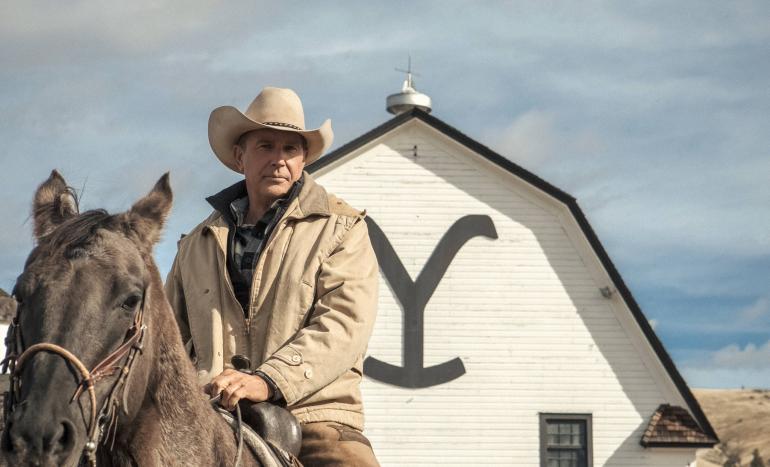

Cab Tran graduated from the University of Montana and received his MFA from the University of Michigan's Helen Zell Writers' Program. His fellowships include residencies in England, Bulgaria, and Greece. His fiction has appeared in Vagabond: Bulgaria's English Monthly, Black Warrior Review, The Iconoclast, and elsewhere. He is currently working on a translation of Bao Ninh's Hanoi at Midnight and also writing The Naturalist, his first novel.

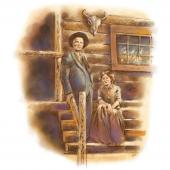


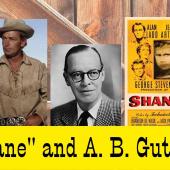

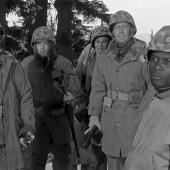


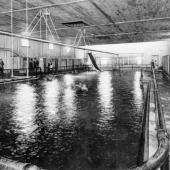

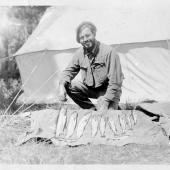
- Reply
Permalink